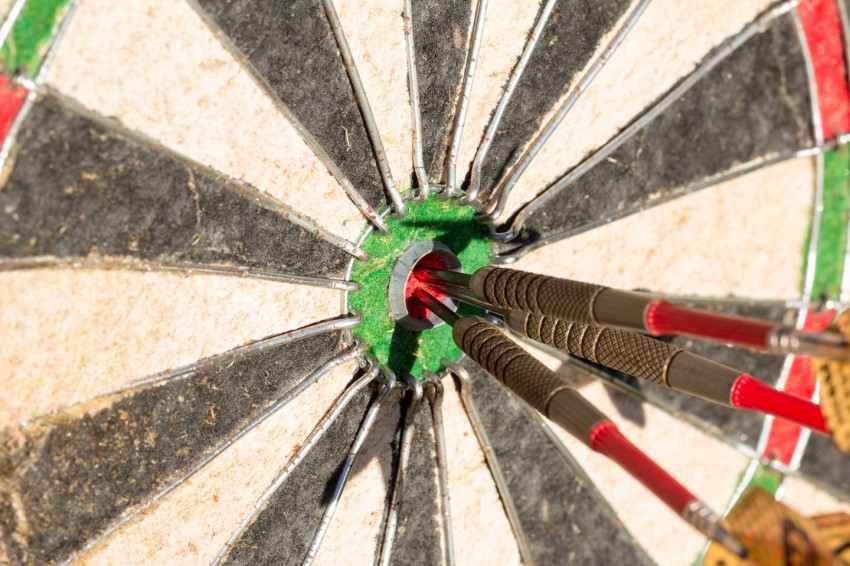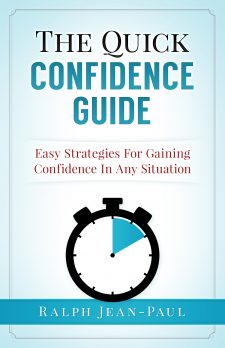It seems like most of the people who inhabit the earth today are happy with just getting by, getting through, and getting just enough. But you are not one of those people. You may not be happy with accomplishing less than you are capable of. Perhaps you want more and want to exceed your potential. If “good enough” is your goal, this post is not for you.
There have been times in my life when I have achieved my goals and there have been many other times when I’ve overachieved my goals. The feeling of overachieving (and the steps to doing so) are vastly different than just reaching your destination. In today’s post, I’ll show you how to overachieve your goals.
Why Overachieving is Better than Just Achieving
You may be saying to yourself “I would love to just accomplish my goals”. Although I commend you for even having a goal (you’d be surprised by how many people don’t have any goals) there are many good reasons why overachieving your goal is much better than just reaching your goals.
Here are a few reasons:
Overachieving makes smaller goals easier-When you practice the habit of overachieving some of your goals, you will find that just reaching some of the other goals becomes much easier. This is due to you becoming accustomed to the effort it takes to overachieve. This will make small goals seem effortless.
You’re better than that-Most likely, you’re capable of accomplishing much more than you are currently doing. By setting the bar lower, you are limiting yourself and will never really know what you are capable of.
Achieving leaves no room for error– Just reaching for your goals is similar to having just enough money in your bank account for your bills. What happens if there is an emergency? If you do not give yourself a buffer of cash, you are risking not having enough money for an extra expense. The same is true for reaching your goals. On your way to your goal, if an obstacle comes up that requires more of you than you anticipated, are you going to be able to rise to the challenge?
Selective Overachieving
I consider myself a selective overachiever. Don’t Google “Selective Overachiever” because it doesn’t exist. I made up that term to describe why I have overachiever tendencies without some of the other common traits found in overachievers. What this means is that even though I love to overachieve, it is not the driving force in my life. And, even though I LOVE to accomplish goals, the goals themselves have to be meaningful and relevant to my life’s direction.
This is not true of many overachievers. Most overachievers need to win at everything, have to be perfect, and feel lost or depressed if they are not. Nothing about that seems healthy and it is certainly not appealing to me. Overachievers often report that they are subject to high anxiety, worry, and stress. Those are also things that I do not struggle with.
Another sign that tells me that I am different from overachievers is in my view of failure. Overachievers often view failure more as a personal reflection on themselves. I tend to view failure as part of the process. According to John Eliot, Ph.D., a clinical professor in human performance at Texas A&M University and author of Overachievement, that trait is more prominent in high performers, not overachievers.
I was not in the top 1% of my class in high school, I am not a perfectionist, and I do not have to win at everything. However, there are many traits that overachievers have that I also possess. For example, one of the tendencies that overachievers have is the tendency to think about the next accomplishment. Whenever I accomplish a new goal (even a really big one) I feel a sense of satisfaction but I am usually thinking about the next thing I can achieve.
Another trait that I share with overachievers is the commitment to long hours of work in order to make a goal a reality. This is clear my willingness to wake up at 3 am, eliminate big fears in my life, and work long hours on my business while I was working a full-time job.
Even though I don’t consider myself a classic overachiever, I very often overachieve my goals. It is possible to overachieve your personal and business goals, without taking on the downside of being an overachiever.
Begin Overachieving
Strong Desire to Be Better
One attribute found in most overachievers is the desire they have to do well. Nobody wants to fail but the level of desire you may have to do well can help elevate how well you perform. Along with persistence, desire can sometimes outperform talent. That desire usually elevates the effort you may put into the activity that you are doing.
When you see a singer, dancer, athlete, or even an artist, it is easy to assume that they are succeeding with little effort. The great ones make it look easy. But this is almost never the case. I once visited a museum that was displaying the works of Norman Rockwell. He became legendary for capturing the realness of American life in the early and mid 20th century.
The most intriguing part of the exhibit for me was where they displayed the different drafts of the masterpieces. I was amazed by how often he would change the facial expressions of the characters, readjust the positioning of objects, and alter points of view. This showed that along with his talent for painting, he also applied much effort into his work.
Over-Understand Everything
The billionaire owner of the NBA’s Dallas Mavericks, Mark Cuban once said that if you are not the most knowledgeable person in the room when you are in a business meeting, you’re going to lose. This is true in life and in business.
If you’ve read my post Should You Quit Your Job to Become an Entrepreneur, you remember that I recently left my corporate job to run my business full-time. My media company deals primarily with online elements. This means I have to be well versed in social media trends, online marketing services, industry changes, and many other things specific to the business sector that I am in.
This means not only do I have to work on being a good decision-maker, a great leader to my staff, and an overall effective entrepreneur, I also need to do my best to be as knowledgeable as possible. I am slowly teaching myself to over-learn many of the things that need to know.
Over-learning refers to practicing newly acquired skills beyond the point of initial mastery. It is important to take the same approach if you want to overachieve your goals. If your goal is to lose weight, master your finances or even to start your own business, you need to become a master of the subject and the path to your destination.
This mastery is key for knowing what to do in certain situations and to overcome obstacles when they present themselves. Without that mastery, it will be easier to get sidetracked and discouraged on the path to overachievement.
Be Process Focused
When people try to just achieve their goal, they usually scale back or stop when they reach their goal. This is the major problem with just trying to achieve your goal. If you desire to lose 10 lbs, most likely your effort of weight loss will stop once you’ve reached that goal. Where do you go from there?
However, being process focused means that you focus on the process of losing weight. If you focus on the process, you can not only lose weight, but perhaps you can also become more fit and healthy. If you say to yourself “I want to workout for 1 hour for 8 weeks” instead of “I want to lose ten pounds in 8 weeks” and you focus on making those workouts the best they could possibly be, in 8 weeks you will most likely lose the weight, become more fit, increase muscle, and overall overachieve.
But if you only focus on the 10 pounds in 8 weeks, you will most likely slow down your effort the closer you get to your goal. Therefore slowing down your fitness and results.
This happens with my business all of the time. When I focus on mastering a process, in order to achieve a goal, I usually overachieve that goal if I can achieve excellent execution. But, if I focus on a specific monthly metric, it seems that my effort slows down once that metric is reached and I cruise the rest of the month.
Being process focused means that daily and weekly actions should be your focus. You should be overly concerned with the quality of the actions more so than the quantity. If you want to improve your ability to network and meet new people, focus on the amount and the quality of interactions you have daily instead of the JUST the results of the interactions. Then ask yourself how each individual interaction could be improved.
Overachieving goals is difficult but worth the work. If you begin to take steps today to work towards exceeding your goals, you will soon find that you are capable of much more than you have ever dreamed.



 Subscribe for free today and get a FREE copy of my ebook The Path 2 Success. Begin your path today!
Subscribe for free today and get a FREE copy of my ebook The Path 2 Success. Begin your path today!










